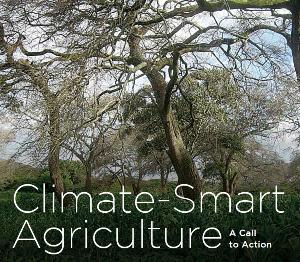"Climate-Smart Agriculture" in South Africa

Agroforestry and landscape restoration featured prominently among the "climate-smart agriculture" solutions that were discussed this week at an African Ministerial Conference in Johannesburg, South Africa.
But first, what is "climate-smart agriculture"? Climate-smart agriculture seeks to increase sustainable productivity, strengthen farmers’ resilience, reduce agriculture’s greenhouse gas emissions and increase carbon sequestration. It strengthens food security and delivers environmental benefits. Climate-smart agriculture includes proven practical techniques — such as mulching, intercropping, conservation agriculture, crop rotation, integrated crop-livestock management, agroforestry, improved grazing, and improved water management — and innovative practices such as better weather forecasting, more resilient food crops and risk insurance.
PROFOR was among the many partners who helped draft a brochure and policy note on climate-smart agriculture for policy-makers eager to put agriculture on the agenda of the UNFCCC COP17 in Durban in December.
Examples ranged from agricultural carbon for smallholders in Kenya, to natural regeneration of agroforestry systems in Niger, restoring Vietnam's mangrove buffer, and silvopastoral approaches in Costa Rica and Nicaragua. For more details, read the brochure and watch the following videos:
- Investing in Trees on Farms (Dennis Garrity, 3mn 03s)
- Climate change has elevated the importance of agroforestry (Dennis Garrity, 3mn 13s)
- Carbon is "icing on the cake" in Kenya Agricultural Carbon Project (Bo Lager, 1mn)








